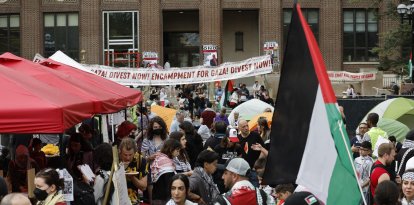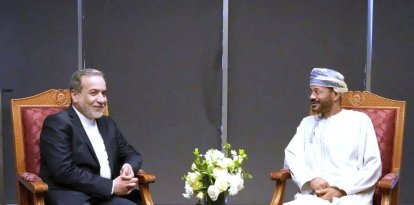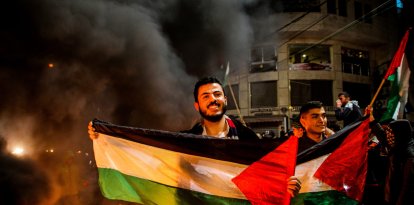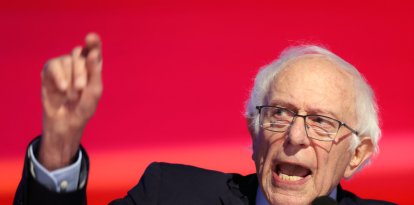Netanyahu's dilemma: Between short-term 'comfort' and long-term necessity
As pressure mounts on the Israeli prime minister after the IDF found six hostages murdered by Hamas terrorists in Gaza, Netanyahu is standing firm and is willing to go to any lengths to bring calm to the region once and for all.
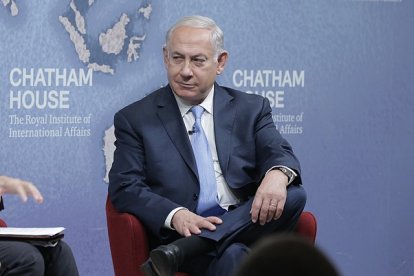
Benjamin Netanyahu
Israeli Prime Minister Benjamin Netanyahu must make extremely complex decisions, especially after the IDF found the bodies of six Israeli hostages executed by the Hamas terrorist group in a tunnel in the Gazan city of Rafah.
As if this were not enough, the murderers from the Palestinian Islamist organization demonstrated sadism and extreme cruelty by releasing a propaganda video showing the six hostages identifying themselves before they were killed. Hamas then sent a warning threatening to show the "last messages" of the victims, in a kind of cruel mockery of the families.
The recent events led to massive protests in the streets of Israel, called by the opposition and trade unions, and a general strike. Also, Netanyahu's government has been the target of worldwide criticism for rejecting a Hamas proposal to free more hostages that would require Israel to withdraw its troops from the Philadelphi Corridor, a strategic location in the south of the Gaza Strip, on the border with Egypt.
Netanyahu: 'No one is more committed to the release of the hostages than I am'
Netanyahu defended his refusal by arguing that this is "the oxygen and weaponry pipeline for Hamas. When we left Gaza and the Philadelphi corridor, the Gaza-Egypt border, there was no barrier to the mass entry of weaponry and machinery for weapons production and digging tunnels, all with Iranian sponsorship. If we don't have the corridor, it creates a monster." He added: "No one is more committed to the release of the hostages than I am. No one lectures me on this issue."
It should be noted that Hamas also demanded an end to the war that it started with the Oct. 7 massacre and the release of Palestinian terrorists imprisoned in Israel.
As mentioned above, criticism of Israel also came from abroad.
The first to do so was Joe Biden, who, with a terse "no," responded to the question of whether he believed that the Israeli prime minister was doing enough to secure the release of the hostages.
In addition, the United Kingdom came out with the toughest action against Jerusalem. The government of Labour's Keir Starmer suspended several of the licenses for arms sales to Israel, claiming that it poses "a clear risk" that it could commit "a serious violation on international humanitarian law."
However, attention needs to be paid to Netanyahu, who maintained that aside from recovering safely the hostages that remain kidnapped by Hamas, he reiterated that the other two major objectives are to eliminate the terrorist group and to make sure that Gaza is not a threat in the future. Herein lies the crux of the matter, as there are two main types of solutions to this conflict: one that emphasizes the short term and one that emphasizes the long term.
A difficult dilemma to solve
From the point of view of the families and friends of the hostages, it is understandable to demand the immediate release at any cost. Anyone would do so, including the writer of this article.
However, it is possible that doing so at any cost would be worse in the long run. This is a very complex dilemma to resolve.
On the one hand, one can choose to give in to almost any proposal put forward by the terrorists and celebrate the release of the hostages in the short term, even if in the long term rockets continue to fall in Israel and more and more attacks continue to occur inside Israeli territory and peace is never achieved, with an excessively high death toll on both sides. On the other hand, one can decide to go all the way, overthrow Hamas, impose transitional military control in Gaza until a leadership emerges that recognizes Israel as a Jewish state and abandons terrorism and indoctrination in antisemitic hatred to achieve calm and peace in the long run.
What is certain is that the Oct. 7 massacre was a turning point. Israel, with Netanyahu's leadership, no longer thinks in the short or medium term, but in the long term. It knows that the price to be paid will be expensive but temporary, and to achieve calm in the region it is necessary to obtain a resounding victory on all fronts, not only in Gaza.
Israel must 'speak Arabic'
Arab-Israeli activist Yoseph Haddad often says that "Israel must speak Arabic," ergo, the Jewish state must crush its enemies in the region, without regard, since its neighbors only understand one language: force. It seems that the Netanyahu government is following that path and stopped eluding total victory.
It should be noted that the peace reached by Israel with Egypt in 1979 and with Jordan in 1994 was not related to a sudden pacifist sentiment of the Arab leaders, but to the Israeli victories in the wars before the agreements.
Israel paid a high price in the armed conflicts in which it was repeatedly involved as its neighbors sought to wipe it off the map, but its enemies paid an even higher price, especially in the Six-Day War in 1967. And it was for this reason that peace came.
The situation with its neighbors had even taken another positive leap earlier this decade, when Israel reached peace agreements with the United Arab Emirates, Bahrain, Morocco and Sudan, and everything seemed to indicate that, before Oct. 7, the Jewish state was about to sign a similar pact with Saudi Arabia, Iran's main rival in the region, which would surely have resulted in other Arab and/or Muslim countries joining the road to peace with Israel.
Months before the Oct. 7 massacre, when Israel was suffering from a wave of terrorism that included Palestinian terrorist attacks and rocket attacks from Gaza, Lebanon and Syria, Haddad warned, in an article published in Israeli media outlet Mida, that the division of Israel would be a threat to the Israeli people, that the division of Israelis due to infighting over judicial reform proposed by Prime Minister Benjamin Netanyahu's government was leading to the Jewish state losing its "deterrence capacity."
"It is time to recalculate the route and allow the IDF to speak Arabic," Haddad said. He added, "The policy of containment only postpones the end, and when the time comes to pay, the price will be higher. In the Middle East, any containment is perceived as surrender and weakness."
Haddad, who was severely wounded while fighting Hezbollah in the Second Lebanon War in 2006, referred in his writing to Israel's limited counter-offensives that sought not to escalate the conflict on any front. Like a fortune-teller, he seemed to predict what would come next: the Oct. 7 massacre, which resulted in what he considers "Israel's Second War of Independence," as he stated in an interview with VOZ days after the terror attack.
Or perhaps it is as Dor Shahar, a brave man who was born in Gaza into a Muslim family and later converted to Judaism and now resides in Israel, told VOZ, that "99% of Gazans support terrorism" and pointed out that the Jewish state should have ended the war in a few hours and without risking the lives of so many soldiers. According to him, all or most of the hostages would have returned home safely and Hamas would have been overthrown. For Shahar, the Israeli response, much-criticized by the international community for being "disproportionate," is too weak.
In any case, regardless of whether one favors the long term or the short term, the world must not lose focus of the brutality of the terrorism of the murderous Hamas madmen and must understand the complexity of this war and allow Israel to "speak Arabic," as Yoseph Haddad says.
The false "humanitarian reasons" wielded to stop this only serve to perpetuate of this conflict. I hope that is not their goal.
RECOMMENDATION
